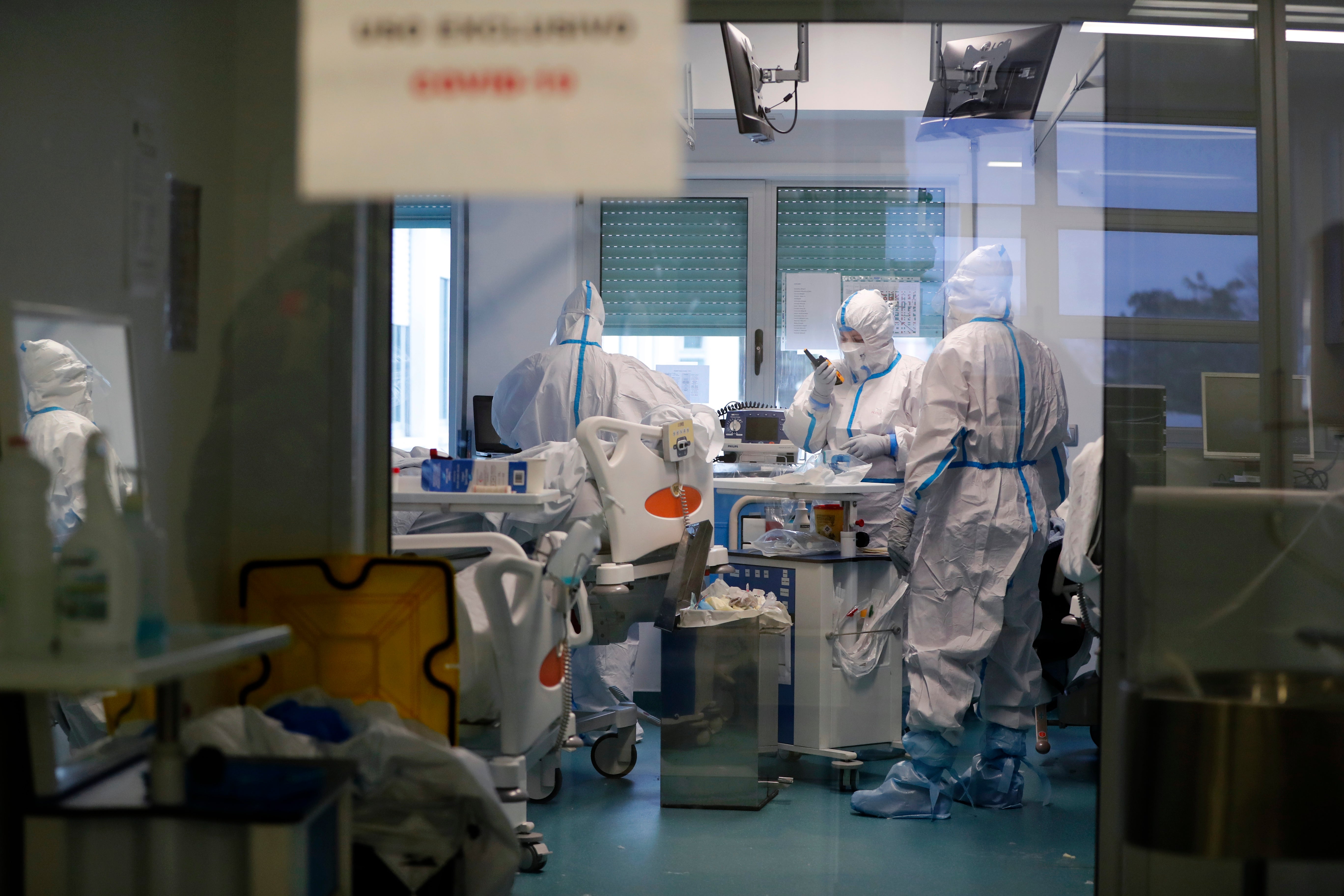Portugal scrambles for virus beds; health system threatened
A January pandemic surge has stretched medical services in Portugal to its breaking point

At Lisbon’s Military Hospital, hundreds of troops have spent frantic weeks rushing to turn every available space into makeshift COVID-19 wards, as Portugal scrambles to cope with a sudden deluge of cases engulfing its public health system.
The hospital’s waiting rooms, consulting rooms and atriums have been filled with beds. This week, the canteen is being sacrificed. It’s the last space left.
“In the first nine months (of the pandemic), we tripled our capacity” of beds, said Brigadier General Rui Sousa, a 20-year army doctor who heads the Military Hospital. In January, “we’ve had to triple that tripled capacity,” he told The Associated Press.
A January pandemic surge has stretched medical services in Portugal to a breaking point. By size of population, Portugal has been the worst-hit country in the world for more than a week in terms of daily new cases and deaths, according to data compiled by Johns Hopkins University.
Portugal is now facing an alarming problem: as soon as new beds come available, they are quickly filled and more are needed. And while extra beds and new wards are relatively quick to produce, trained medical staff aren’t.
On top of that, things are going to get worse. Experts predict the surge will peak only in mid-February, raising the specter of a collapse of the country's health system.
“Human resources are finite, and that is where the most critical situation is,” says Carlos Robalo Cordeiro, a member of the crisis committee at Portugal’s national association of doctors and vice president of the European Respiratory Society.
“Numbers (of patients) are overtaking the capacity of resources to respond,” he told The AP.
Portugal is reeling from the twin effects of a Christmas relaxation of restrictions on gatherings that coincided with the appearance of a fast-spreading new variant first identified in England.
Experts have chided the government for failing to respond more swiftly. Flights to and from the U.K. were banned only last weekend. Flights to and from Brazil, a country with close ties to Portugal where another worrying variant has been detected, will be banned beginning Saturday.
Ambulance drivers protested Wednesday night outside Lisbon’s biggest hospital where in recent days ambulances have had to queue for hours to deliver COVID-19 patients. The overloaded hospital appealed for upset families to stay calm, saying that only 15% of those arriving in the ambulances required hospitalization.
The Portuguese government is turning to other European Union countries for help. Germany this week sent two doctors and a medevac specialist to Lisbon on a reconnaissance mission.
Meanwhile, authorities are marshalling national resources for a fight that has already brought deaths on an unprecedented scale, with more than 11,300 confirmed virus deaths in a country of 10.3 million people.
Resources are being stretched and repurposed as fast as possible. The Lisbon Military Hospital has been taking overflow patients from public hospitals in the region. At what was the hospital’s canteen, carpenters, electricians and laborers were working to transform it into a 50-bed infirmary in three days.
From dawn to midnight, panels are assembled and wiring and oxygen pipes are installed amid the noise of power drills, hammering and sawing. Marines carry in metal beds and olive-green mattresses from military barracks.
An increased workforce of 400 members of the Portuguese Army, Navy and Air Force are handling the new workload — not just medics but also auxiliary staff to deal with cooking and laundry.
In total, the hospital will have 274 beds — 80% of them for COVID-19 patients.
But it’s like digging a hole in sand. Last Friday, the Military Hospital started repurposing an area to create 20 beds for COVID-19 patients. It opened on Monday morning. On Monday afternoon it was full.
Sousa says his hospital has reached its limit.
“We’ve run out of space and human resources,” he says.
____
Frank Jordans in Berlin contributed to this story.
___
Follow all of AP’s pandemic coverage at https://apnews.com/hub/coronavirus-pandemic, https://apnews.com/hub/coronavirus-vaccine and https://apnews.com/UnderstandingtheOutbreak
Bookmark popover
Removed from bookmarks